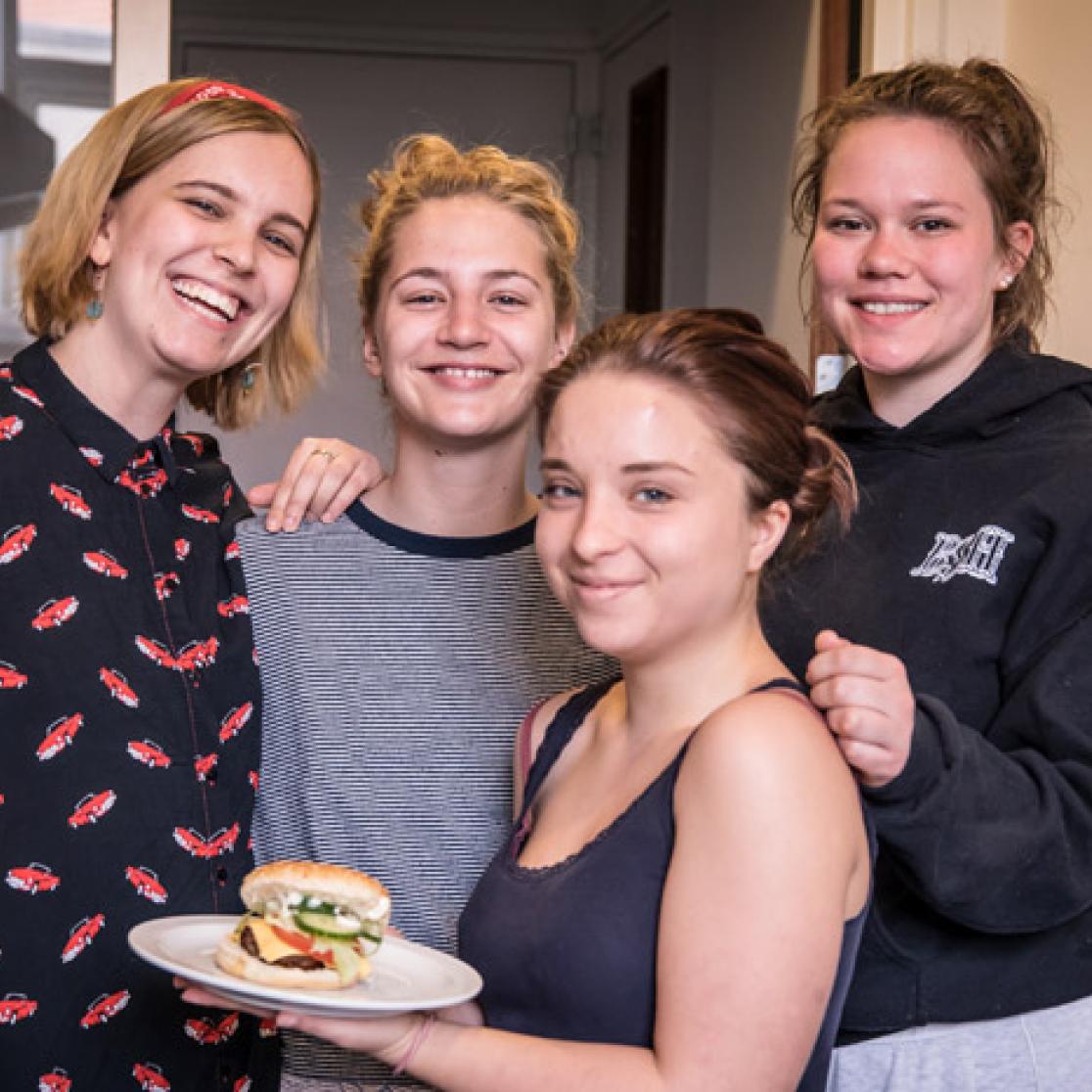Cooking for the homeless
Two large pans of sauce simmer on the stove in the small kitchen of the Salvation Army. UM students Carlotta, Emma, Julia and Alice drain spaghetti, add some cream to the meat and take the grated cheese from the refrigerator. They are making pasta bolognese for the people who receive shelter and support here.
Through Match Maastricht, Carlotta heard that the Salvation Army in Maastricht manages two Domus houses, a type of assisted living for people with substance abuse issues. The caretakers do not have the time to cook extensively, so microwave meals are served. The residents eat in two shifts, at five o'clock and at eight o'clock in the evening. Carlotta proposed to make a fresh meal every week—not only tastier, but also cheaper.
Cooking plan
After a start-up period of a couple of months, the club of volunteers is now slowly taking shape. On average, the cooking is done once a week, but the aim is twice a week. Carlotta: “We’re currently in discussions with people who’ve indicated that they want to participate. In this way, we hope to have about twenty students who are really involved, rather than sixty people we can’t fully rely on. We also work together with The InnBetween (the student chaplaincy). They help us, for example, by preparing in advance a cooking plan for six weeks.”
Each time, there are now a maximum of five students preparing the meal. More people cannot fit in the small kitchen, which also contains a whopper of a six-burner stove, so cooking for about 20 people can be done easily.
Nasi
A few days before they come, the volunteers send their weekly recipe to the Salvation Army. The employees there do the grocery shopping. “When we arrive, all the ingredients are in the fridge, so we can start right away. By now, we know that the residents mainly like a meal that contains meat and is not too seasoned. ‘Normal’ food—that's what they like best.” The students also eat with them. “The residents appreciate that”, Carlotta knows, not that they always show it. “The behaviour of addicts is sometimes unpredictable. Someone comments on occasion, but we take that into consideration.”
Today, the residents seem to think the food tastes good. “Nice”, says John, a somewhat older man who has wandered in behind his rolling walker. “I don’t eat here every day, but I do when the students cook. That is something different than eating from a plastic container. I especially like pasta or nasi.” A fellow resident wants to know if the food is spicy. When the answer is ‘no’, he shuffles out with a full plate, sounding out a sincere ‘thank you’ while leaving.

By: Meyke Houben (text), Aron Nijs (photography)